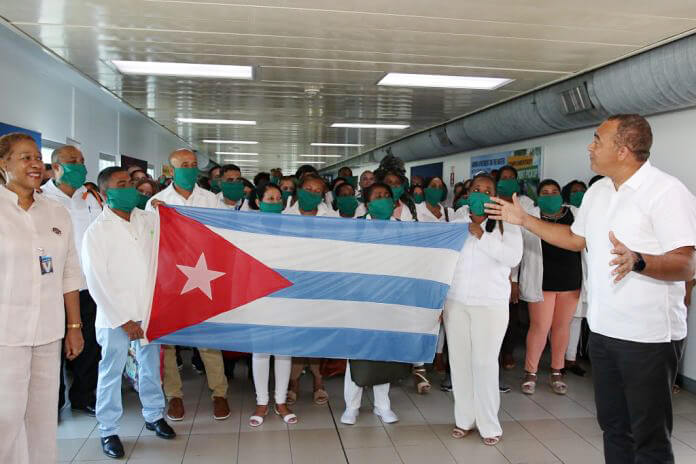Cuba’s Communist Party on May 9 published a list of proposed economic reforms, raising both high hopes for a more efficient economy and deep questions about exactly how that would be achieved.
The 313 “guidelines” proposed expanding the sale of homes and cars and the ability of Cubans to travel abroad as tourists, creating production cooperatives and slashing state subsidies and payrolls, among many other changes.
Endorsed last month at a Communist Party Congress, the proposals are designed to rescue a crisis-plagued economy by opening the doors to private business activity without totally abandoning Cuba’s half-century of Soviet-styled central controls.
The government also wants to eliminate the country’s burdensome two-currency system and legalize the sale of construction material at unsubsidized prices.
Other guidelines call for the continued shrinking of the ration card, which provides all Cubans with a basic basket of food and personal items per month at highly subsidized prices, and replacing it with a system of subsidies for poor families only.
But the proposals published in the Granma newspaper, the official voice of the party, provided few details on how those changes would be carried out.
Analysts said that simply bringing into the open what had been a black market of house and automobile swaps could be one of the most significant changes to the economy in decades and could inject badly needed cash into the system.
Many Cubans hardly ever move, and they often are stuck driving crumbling Soviet-era cars bought from state dealers. Individuals are permitted to sell cars made before the 1959 revolution, but only to another owner. “These are very important steps,” said Arch Ritter, an economist at Carleton University in Ottawa, Canada, who studies Cuba.
“To have a housing market, for example, will be of tremendous importance to Cuban citizens, because there hasn’t been a market in 50 years,” he added. “In Cuba, people are born in the same house they die in.”
Cuban expatriates in the United States have closely followed the changes, eyeing the potential to snap up real estate through relatives on the island, though it remains to be seen if the government will put brakes on foreign ownership or financing.
Many of these changes are already under way, announced in a number of speeches by President Raúl Castro over the past several months.
In the speeches, Castro declared that Cuba, hit hard by the global recession, deteriorating sugar market and, the government says, repercussions of the United States’ economic embargo, must move from an almost entirely state-based economy toward one allowing at least a little more free enterprise.
Castro has vowed to maintain socialism, while taking steps like expanding the ranks of the self-employed and increasing the leasing of state land for private farming, all subject to heavy taxation.
But the publication, released on May 9, included new or seldom-discussed nuggets. One was an effort to promote formation of cooperatives that could function as midsize companies, selling products directly to consumers.
The document also said leaders should “study a policy that allows Cubans living in the country to travel abroad as tourists.”
Tourist travel is already technically permitted, but an onerous, expensive bureaucratic process effectively halts all but select Castro loyalists from leaving, analysts said.


























